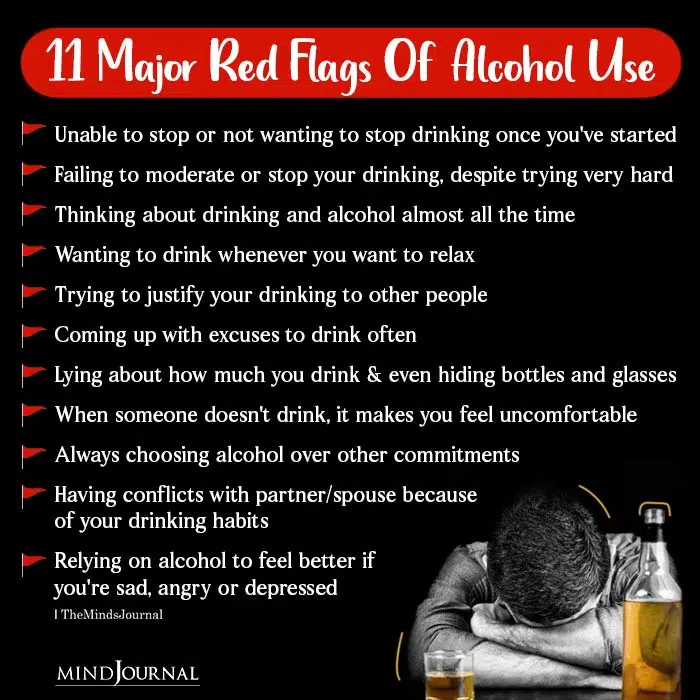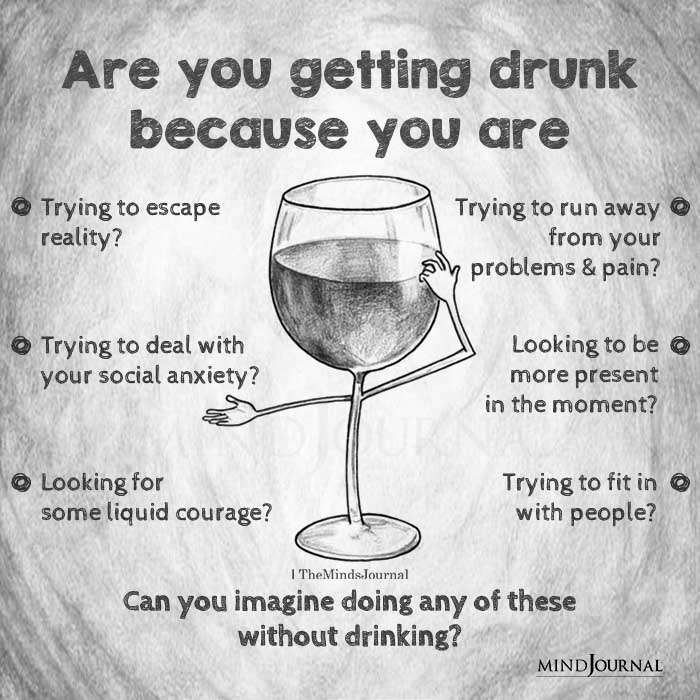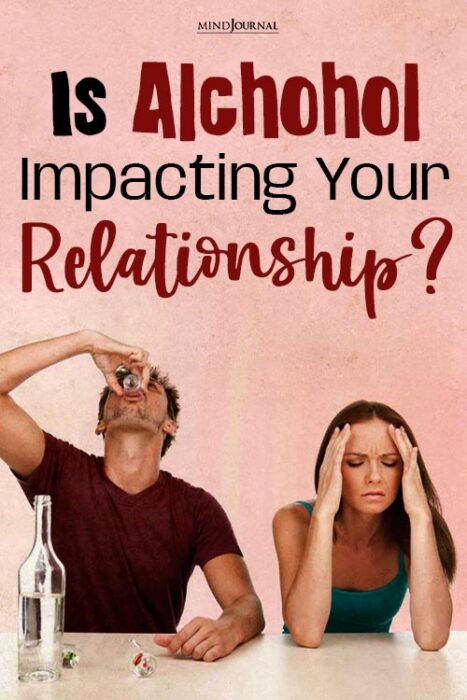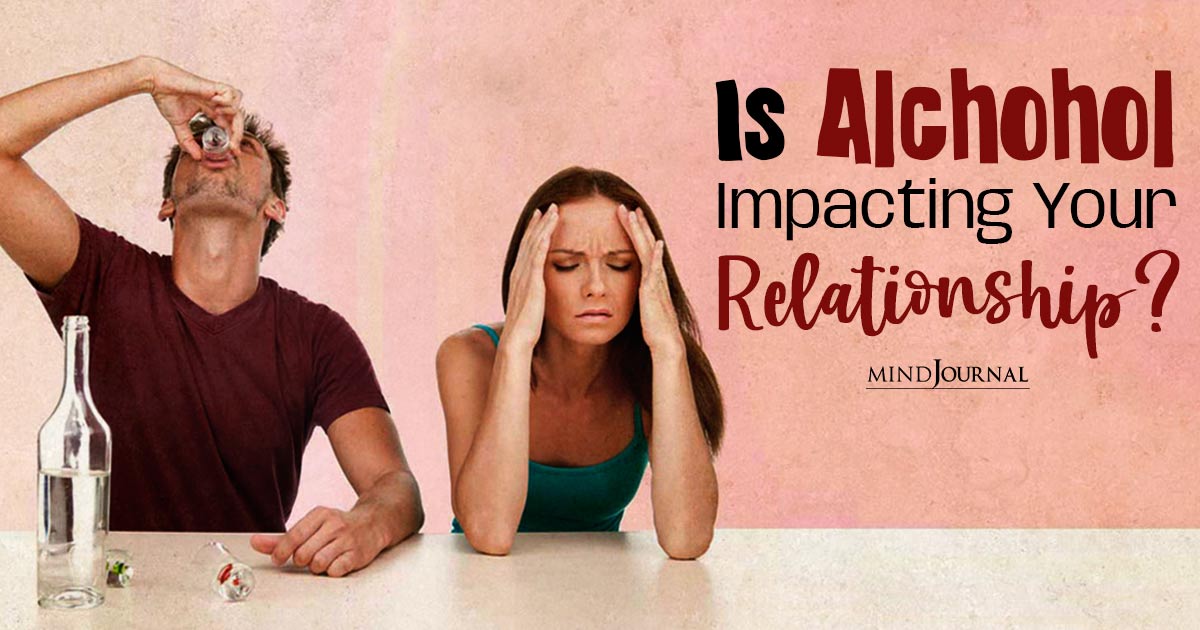Is alcohol impacting your relationship? If your answer is yes, then you’ve come to the right place. This article is going to explore how alcohol affects your relationship, the reasons behind it, and how to cut back on alcohol.
During an interview on the popular podcast The Tim Ferriss Show, famous entrepreneur and businessman Sir Richard Branson once suggested a simple yet important thought experiment to listeners.
We’ll paraphrase that thought experiment here:
Think back to the few biggest mistakes or arguments of your marriage. Now think how many of them occurred when one or both of you were under the influence of alcohol.
Does your answer surprise you? Perhaps—but it doesn’t surprise psychological research. Studies consistently show that drinking can negatively affect relationships.
Related: The Benefits Of Quitting Alcohol For Good: 7 Ways Your Life Changes For The Better
So what does this mean? Should you never drink again in order to save your marriage? Not necessarily. But it’s important to understand how alcohol can affect people and the way they relate to others. Doing so will help you reduce the risk of beer, wine, or liquor degrading the health of your relationship.
*Disclaimer: For the purposes of this blog post, we are not explicitly talking about alcoholism, also known as alcohol use disorder. While alcoholism is serious, prevalent, and treatable, it is beyond the scope of our discussion here.
If you believe alcoholism is affecting you or a loved one, please seek help. Contact a local resource or call the National Institute on Drug Abuse (NIDA) at 1 (800) 662-HELP (4357).

3 Reasons Why Alcohol Affects Your Relationship
Alcohol isn’t necessarily the big bad wolf. But if you don’t remain aware of how it can affect you, your partner, and your interactions, then it definitely can bite.
Here are three key reasons why alcohol so often affects people in negative ways:
1. It’s a drug.
By definition, alcohol (even small amounts of it) can alter a person’s emotions, perception, and thought process. A well-known depressant, alcohol can lower your mood and inhibitions—a potential recipe for faster-to-fight situations between you and your partner.
2. It enjoys a cultural “pass.”
Alcohol is widely accepted in the cultural milieu. Consciously or not, we often downplay the negative effects of alcohol and view it as a mandatory aspect of celebrating, de-stressing, and so on.
Case in point: Have you ever said something like “I only said that because I was drunk,” “We only fight when we’ve been drinking,” or “We can’t celebrate our anniversary without wine?”
These are major red flags that you’re failing to recognize the power that alcohol can have on you and your partner.
3. Its psychological effects directly influence social interaction.
We already alluded to the idea that alcohol can impact your mood. To be more specific, heavy or even moderate drinking can cause a person to be more aggressive, disinhibited, defensive, sensitive, and irrational.
These psychological effects can persist even after alcohol is out of your system, and in the long-term can change brain function.
Related: The Illusion Of Willpower: Why Cant You Just Quit Alcohol
3 Ways To Reduce The Effect Of Alcohol On Your Relationship
Let’s say you’ve identified alcohol as a negative influence on you and your partner. It’s fuelled arguments, nit-picky behaviors, and otherwise unloving interactions between the two of you—even if only slightly and occasionally.
So, how can you start mitigating the effects of alcohol within your marriage or partnership?
Consider these three tips, realizing that some may be more or less feasible for you personally than others:
1. Commit to drinking responsibly.
For men, that means up to two alcoholic beverages per day. For women, it’s up to one. Remain present and really enjoy your drink.
Make a ritual of it, such as toasting each other and saying something you feel grateful for before going bottoms up. If you do this, the recommended daily maximum should be more than enough.

2. Consider only imbibing in alcohol when you’re out of the house.
The added expense of buying priced-up alcohol at a bar or restaurant may help you curb the habit. Plus, sitting around at home drinking in a familiar environment can often fuel unnecessary conflict or excessive consumption.
(It goes without saying that if you are drinking out of the house, you’re always ensuring you have a safe ride home—designated driver, Uber, etc.—and are never driving under the influence.)
Related: 20 Things People Realize When They Quit Drinking Alcohol
3. Complete a sober month together.
Made famous by “Dry January,” sober months are growing in popularity these days. In addition to boosting your mood and helping you save money, research shows that going alcohol-free for 30 days can improve sleep, blood sugar and cholesterol levels, weight, and liver function.
Want to know more about the effect of alcohol on your relationship? Check this video out below!
Want to read more such empowering pieces? Check out April Eldemire’s blog here.
Written By April Eldemire Originally Appeared On Couples Thrive









Leave a Reply
You must be logged in to post a comment.